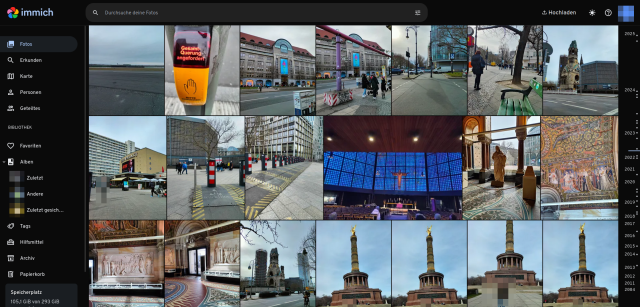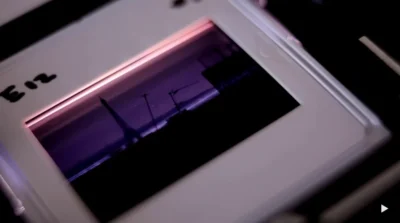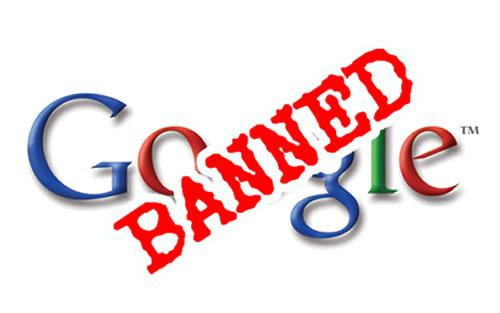Suche
Beiträge, die mit GooglePhotos getaggt sind
Ich habe mal testweise Immich installiert. Das sieht echt gut aus und erinnert wirklich sehr an Google Photos. Immich ist zwar noch in einer Beta-Phase, aber dafür läuft es schon sehr gut.
Von den fast 18.000 Fotos und Videos sind nun schon gut 10.000 hochgeladen und die CPU hat gut zu tun, denn das muss alles erst verarbeitet werden. 😂
Wer es ausprobieren möchte, findet auf der Immich-Webseite den Link zum testen. Die passende App für's Handy gibt es auch dazu. 👍
Link: Immich - Self-hosted photo and video management solution


#Photos, #selfhosting, #selfhosted, #Fotos, #Immich, #googlealternatives, #GooglePhotos
Von den fast 18.000 Fotos und Videos sind nun schon gut 10.000 hochgeladen und die CPU hat gut zu tun, denn das muss alles erst verarbeitet werden. 😂
Wer es ausprobieren möchte, findet auf der Immich-Webseite den Link zum testen. Die passende App für's Handy gibt es auch dazu. 👍
Link: Immich - Self-hosted photo and video management solution


#Photos, #selfhosting, #selfhosted, #Fotos, #Immich, #googlealternatives, #GooglePhotos
I'm decentralizing my #social #media.
Email/Calendar: #Proton.me
Browser/Search Engine: #DuckDuckGo
Social Media: #BlueSky & #Mastadon ( #Pixelfed)
TikTok Replacement: #Xiaohongshu
#Spotify Replacement: #SoundCloud
Now to further #decentralize my technology & #media from corrupt/lobbying entities, I need to get #GooglePhotos / #GSuite out of the mix.
Any #suggestions?
Email/Calendar: #Proton.me
Browser/Search Engine: #DuckDuckGo
Social Media: #BlueSky & #Mastadon ( #Pixelfed)
TikTok Replacement: #Xiaohongshu
#Spotify Replacement: #SoundCloud
Now to further #decentralize my technology & #media from corrupt/lobbying entities, I need to get #GooglePhotos / #GSuite out of the mix.
Any #suggestions?
This Website Shows How Much Google’s AI Can Glean From Your Photos

Software engineer Vishnu Mohandas decided he would quit Google in more ways than one when he learned that the tech giant had briefly helped the US military develop AI to study drone footage. In 2020, he left his job working on Google Assistant and also stopped backing up all of his images to Google Photos. He feared that his content could be used to train AI systems, even if they weren’t specifically ones tied to the Pentagon project. “I don’t control any of the future outcomes that this will enable,” Mohandas thought. “So now, shouldn’t I be more responsible?”
Apart from the incredible detail that is recognised from the smallest details on a single photo, the AI also draws all sorts of inferences from appearances, expressions, etc. But you really need to think about the collective analysis across hundreds or thousands of personal photos a single Google user backs up into Google Photos. The power of AI across all of those photos is where the true value lies.
Google though, says the company doesn’t sell the content stored in Google Photos to third parties or use it for advertising purposes. Users can turn off some of the analysis features in Photos, but they can’t prevent Google from accessing their images entirely, because the data are not end-to-end encrypted.
As a user, you just have to hope that analysis really does not get into the wrong hands, no matter whose hands those may be.
See https://www.wired.com/story/website-google-ai-photos-ente
#Blog, #AI, #GooglePhotos, #privacy, #technology

